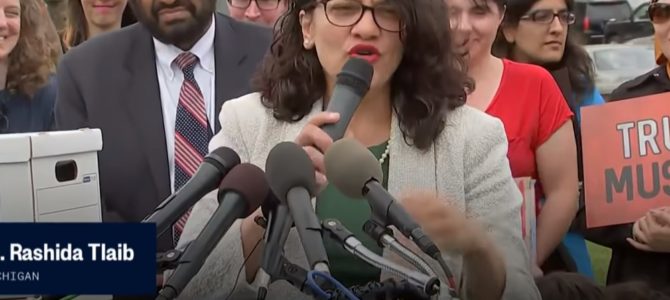
A rash of violent antisemitic attacks carried out by black Americans throughout December was an important reminder that by focusing on white supremacist antisemitism, Americans have neglected the spectrum of anti-Jewish hate at work in our society.
On Dec. 10, a black man and woman in Jersey City killed four in a kosher supermarket. Jews were targeted in eight attacks in New York City between Dec. 23 and 27, during the celebration of Hanukkah. Of four known perpetrators, three were black. On Dec. 28, Grafton Thomas, a black man who held antisemitic beliefs, used a large machete to stab five Hasidic Jews at a Hanukkah lighting celebration in Rockland County, New York.
After Thomas’ attack, leaders such as Rev. Al Sharpton, President Donald Trump, Speaker of the House Nancy Pelosi, D-Calif., and New York Gov. Andrew Cuomo expressed support for the Jewish community and called for an increased understanding of how to combat antisemitic hate from all sources.
Even New York City Mayor Bill de Blasio, who did little to combat the 63 percent increase in antisemitic attacks in his city throughout 2019, reacted to the Hanukkah attacks by deploying police personnel to protect the Jewish population.
Still others blamed the series of heinous antisemitic acts on President Trump and white supremacists. Among these were Rep. Rashida Tlaib, D-Mich., who previously blamed the Jersey City shootings on white supremacists in a now-deleted tweet. On Dec. 29, she blamed the president for the atmosphere in which hatred, including antisemitism, is rising.

Tlaib’s remarks fail to address the left-wing politicians, media figures, and Hollywood stars who have played a significant role in stoking hate in America. Among these, Tlaib is a recurring figure.
More importantly, unless Trump is also to blame for the increase of antisemitism around the globe, including in the U.K., Germany, Denmark, Poland, Belgium, Sweden, Austria, France, Australia, and Canada, Tlaib’s diagnosis is incorrect and minimizes a dangerous trend.
NBC fact-checker Erin Biba directed blame at a different source. Her misguided take on Thomas’s antisemitic attack lamented a “massively complicated” environment and “growing division among two communities” in New York. Ultimately, she advised Americans to unite in solidarity “against our shared enemy of white supremacy.”
Backlash against her attempt to provide cover for antisemitism and blame Thomas’ attack on white supremacy was swift. Biba deleted the tweet and ultimately deleted her Twitter account.

Distracting from the Problem
When Tlaib and Biba attempt to divert attention from the many-faced crisis of antisemitism, they stall the process of understanding and addressing this pernicious hatred.
American antisemitism emanates from varied sources. Recent anti-Israel protests on college campuses have left Jewish students fearing violence. A boycott, divestment, and sanctions movement protest in 2019 led to vandalism against and antisemitic harassment of one of Tlaib’s constituents, a Lebanese American Muslim business owner in Dearborn, Michigan.
Since 2018, white nationalists carried out deadly attacks on synagogues in Pittsburgh and California. In 2019, black Americans carried out one deadly and several atrocious but nonlethal attacks in the Northeast. Rather than some transient dislike, antisemitism is a deeply and firmly held hatred upon which its believers often feel compelled to act. This potent anti-Jewish hate has been tailored to the needs of many groups seeking a scapegoat for disenchantment with their lot in life.
Conspiracy theorist antisemites blame Jews for orchestrating the 9/11 attacks, starting the institution of American slavery, and perpetrating evils against the black community through gentrification and police brutality. They allege Jews are working to supplant the white race and control the media, internet, discourse, banks, and weather.
Antisemites spew a host of contrary ideas about the Holocaust, stating Jews manufactured and even exploited the period of Nazi mass murder. Some admit Jews died during the Holocaust but believe these deaths occurred on a small scale through exposure and starvation rather than through the systematic extermination of 6 million Jews, two-thirds of the European Jewish population.
To the detriment of Jews around the world, the Jewish state of Israel is often called an apartheid state with Nazi-esque policies and the powers to hypnotize other actors on the world stage.
When this kind of bile leads people to commit violent attacks against Jews, antisemites have the gall to blame Jews for their own assaults and deaths. Without a swift move to fully understand and address the various forms antisemitism has taken in America, this terrible hatred will only filter further into the populace.
Uniting to Protect Jews
Antisemitism has been on the rise in America for years, and with each new attack, the left and right bicker about whose side is to blame for the escalation. Meanwhile, American Jews bear the brunt of our collective inability to unite against antisemitism.
In a survey from October, the American Jewish Committee found that 31 percent of American Jewish respondents now avoid wearing “symbols or objects identifying them as Jews.” This is not an atypical response. In a recent Atlantic article, Holocaust scholar Deborah Lipstadt notes how Jews around the world have gone underground with their religious identity.
Their distinctive style of dress renders Orthodox Jews highly visible, however. Unable to blend in, they have been the targets in most of the attacks in New York City in 2019. In late December, signs were posted around St. Albans, Vermont, which read “its [sic] okay to be anti-Semitic.” In response, the Simon Wiesenthal Center tweeted an important reminder on Dec. 29: “Jews cannot defeat antisemitism. Only our neighbors can.”
The current environment of antisemitism is unacceptable, but it cannot be diminished without concerted, unified efforts. It is past time for Americans to come together and understand the nature and effects of antisemitism at home and abroad. Those who react to antisemitic attacks by playing the blame game are standing in the way of a solution at best. At worst, they are part of the problem.









